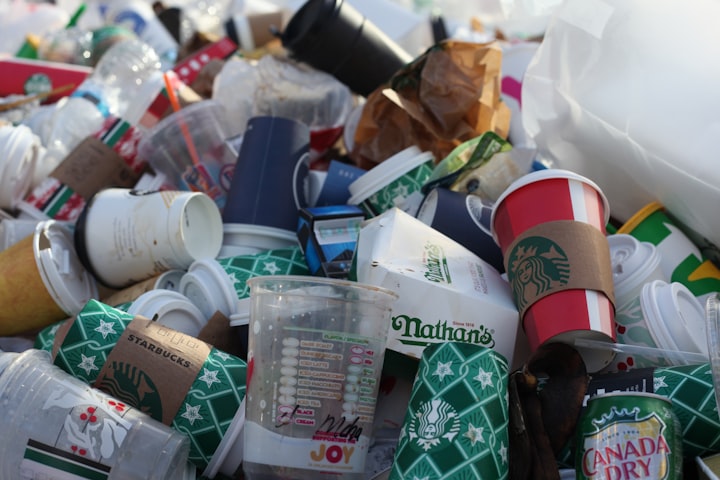Tackling Plastic Pollution
Strategies for Waste Reduction, Recycling, and Sustainable Alternatives
Introduction
Plastic pollution has emerged as a global crisis, posing significant threats to our environment, wildlife, and human health. With its durable nature and widespread use, plastic waste has inundated our landfills, rivers, oceans, and even the most remote corners of our planet. However, by adopting effective waste management strategies, promoting recycling initiatives, and embracing sustainable alternatives, we can begin to address this pressing issue and work towards a cleaner, healthier future.
The Environmental Impacts of Plastic Waste
The environmental impacts of plastic waste are multifaceted and far-reaching. Plastics take hundreds of years to decompose, leading to their accumulation in landfills and natural environments. As a result, plastic pollution endangers wildlife through entanglement and ingestion. Marine animals, such as turtles, seabirds, and whales, often mistake plastic debris for food, resulting in injury, suffocation, and death.
Moreover, plastics break down into microplastics, tiny particles less than 5mm in size, which have permeated our ecosystems. These microplastics can be found in our water sources, soil, and even the air we breathe, posing potential risks to human health. Additionally, plastic pollution disrupts aquatic ecosystems, harms coral reefs, and degrades natural habitats, further exacerbating the ecological imbalance.
Strategies for Waste Reduction
To combat plastic pollution, waste reduction should be at the forefront of our efforts. This can be achieved through various means:
Single-Use Plastic Reduction: Governments, businesses, and individuals can reduce the consumption of single-use plastics such as plastic bags, straws, and cutlery. Encouraging the use of reusable alternatives and implementing legislation to ban or impose levies on such items can significantly curb plastic waste.
Product Design and Packaging Innovation: Manufacturers can embrace sustainable practices by employing eco-friendly materials, reducing packaging, and designing products for easy recycling or composting. Emphasizing the principles of a circular economy can encourage the responsible use and disposal of products.
Education and Awareness: Raising public awareness about the detrimental impacts of plastic pollution and providing information on waste reduction techniques can empower individuals to make more sustainable choices. Education campaigns targeting schools, communities, and online platforms play a vital role in fostering behavioral change.
Promoting Recycling Initiatives
While waste reduction is crucial, recycling plays a vital role in managing the plastic waste already in circulation. To maximize recycling rates and minimize environmental impact, the following measures can be implemented:
Improved Recycling Infrastructure: Governments and municipalities should invest in robust recycling infrastructure, including collection systems, sorting facilities, and recycling plants. Ensuring accessibility to recycling facilities encourages participation and streamlines the recycling process.
Extended Producer Responsibility (EPR): Implementing EPR programs holds manufacturers accountable for the entire lifecycle of their products. This approach encourages producers to design products with recyclability in mind, while also facilitating the collection and recycling of their goods.
Plastic-to-Fuel Conversion Technologies: Innovative technologies that convert plastic waste into clean fuels or other valuable materials offer a promising solution. By transforming plastic waste into a valuable resource, these technologies reduce the reliance on fossil fuels and minimize the environmental burden of plastic waste.
Embracing Sustainable Alternatives
Transitioning to sustainable alternatives is a fundamental aspect of combating plastic pollution. Promising alternatives include:
Biodegradable and Compostable Materials: Bioplastics derived from renewable sources, such as cornstarch or sugarcane, offer a more environmentally friendly alternative to conventional plastics. These materials can biodegrade under specific conditions, reducing their persistence in the environment.
Paper and Cardboard: Opting for paper and cardboard packaging instead of plastics can significantly reduce waste. However
it is important to ensure that these alternatives are sourced sustainably, taking into account responsible forestry practices and avoiding deforestation.
Reusable Containers and Packaging: Encouraging the use of reusable containers, such as glass or stainless steel, for food and beverage storage can greatly reduce the need for single-use plastics. Similarly, promoting refillable options for household and personal care products can minimize plastic packaging waste.
Innovative Materials: Researchers and innovators are continuously exploring and developing new materials derived from natural sources, such as seaweed or mushroom-based packaging. These materials have the potential to replace traditional plastics while offering biodegradability and low environmental impact.
Collaborative Efforts and Policy Support
Addressing the plastic pollution crisis requires collaboration and support from various stakeholders:
Government Policies and Regulations: Governments play a pivotal role in shaping waste management policies and regulations. By implementing comprehensive legislation, such as plastic bans or extended producer responsibility laws, governments can incentivize sustainable practices and hold industries accountable.
Industry Leadership: Businesses should take a proactive role in reducing plastic waste by implementing sustainable packaging solutions, promoting recycling initiatives, and embracing circular economy principles. Collaboration between industries, NGOs, and governments can drive innovation and accelerate the transition to a plastic-free future.
Consumer Engagement: Individuals can contribute to waste reduction by making conscious choices, such as refusing single-use plastics, recycling diligently, and supporting businesses that prioritize sustainable practices. Consumer demand for eco-friendly alternatives can drive market shifts and encourage widespread adoption of sustainable solutions.
International Cooperation: Plastic pollution is a global issue that requires international cooperation and coordination. Collaborative efforts between countries can facilitate knowledge-sharing, funding support, and the development of global frameworks to combat plastic pollution effectively.
Conclusion
Plastic pollution poses a significant threat to our environment and demands urgent action. By implementing strategies for waste reduction, promoting recycling initiatives, and embracing sustainable alternatives, we can mitigate the impacts of plastic pollution and work towards a cleaner, healthier planet. It is through collaborative efforts, policy support, and individual commitment that we can address this global crisis and pave the way for a more sustainable future for generations to come. Let us take responsibility for our actions and strive for a world where plastic pollution is no longer a threat but a chapter of our past.
About the Creator
Akintomide Duyile
I am a highly acclaimed and prolific writer, known for their exceptional literary prowess and captivating storytelling,essay writing and poetry collections. Ability to explore different narative styles and themes.






Comments
There are no comments for this story
Be the first to respond and start the conversation.